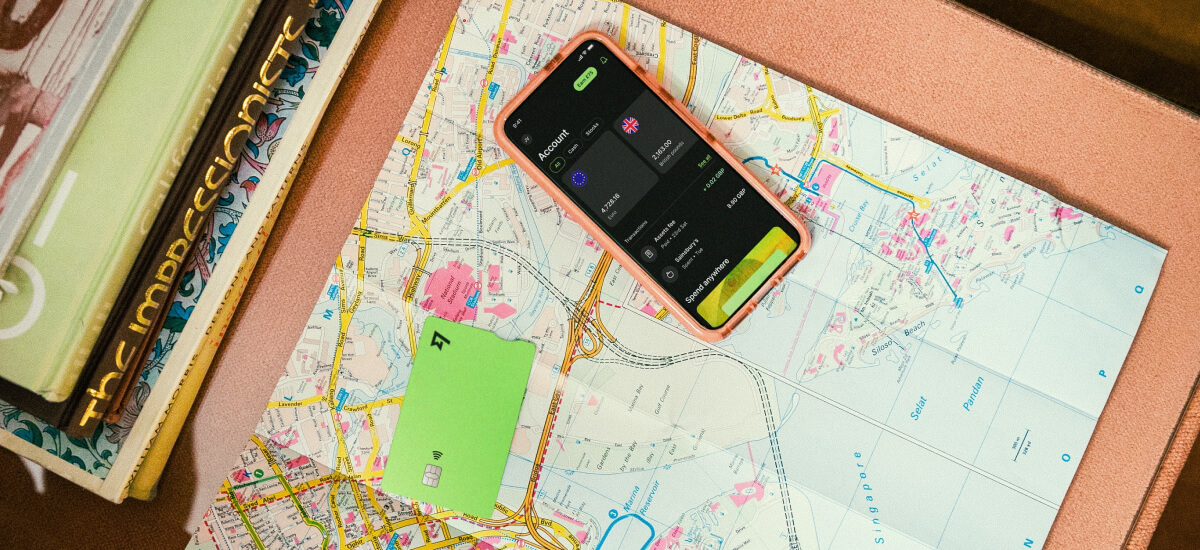Can you get an international mortgage from Chase?
It's not common for Chase to hand out international mortgages, but here's what you need to know and available alternatives.

If you want to buy property in Dubai, you can pay in cash or take out a mortgage. The good news is that it’s perfectly possible for a foreign resident to get a Dubai mortgage, whether you’re looking for an investment or a new family home.
This handy guide covers which banks offer mortgages and home loans in Dubai to non-residents, the paperwork you'll need to get your loan, the legal ins and outs, and what it might cost.
For an easy process of moving your money to the UAE, use Wise. It’s fast, cheap, and secure - even for large payments.*
Yes, it’s possible for a non-resident to get a mortgage in Dubai. However, it can be trickier than for Dubai residents.
You’ll need to show extensive proof of income. You can also expect to have to pay a hefty down payment - at least 25% of the total cost of your property.¹
Since a change in the local law in 2002, foreigners can legally buy property in Dubai and apply for a mortgage. This fuelled a big rise in expats buying homes in Dubai, either for themselves or to rent out for extra income.
Individual banks set their own terms, and not all of them will work with foreign buyers. However, it’s still possible to get a Dubai mortgage.
The most important thing that banks look for is your income. Generally speaking, you need to make at least 15,000 AED (~4,000 USD) per month to qualify for a mortgage.¹ If you’re self-employed, your income proof may need to be higher than if you were a salaried worker.
Buying property in Dubai can open a path to UAE residency.
Purchasing property for 2 million AED (~545,000 USD) allows you to apply for a 10-year Golden Visa. If you buy property for 750,000 AED (~204,000 USD), you can get a 2-year residency visa.²
| Wondering how much does it cost to buy a house in Dubai? Learn more about buying property in Dubai in our full guide. |
|---|
The mortgage market in Dubai is well-developed. There are dozens of mortgage providers, from globally known brands to local financial institutions.
There are two main types of mortgages available in Dubai: fixed-rate mortgages and variable-rate mortgages.
With these mortgages, the interest rate stays the same for a set period of time, usually between 1 to 5 years. Your monthly payments are more predictable, but the interest rate is typically higher. After the set period ends, the mortgage reverts to a rate set by your bank.
The interest rate on variable-rate mortgages changes based on market conditions. Your monthly payments will vary, but your interest rate will typically be better than with fixed-rate mortgages.
| Read further |
|---|
Property insurance is typically required in Dubai when taking out a mortgage. It safeguards your property’s value against potential damages.
There are two types of property insurance: property insurance and home contents insurance.
Property insurance (also known as building insurance), covers the structure of the property itself. Home contents insurance covers the personal belongings within your apartment or house.
While property insurance is typically mandatory, home contents insurance is optional.

Now that we covered the basics of getting a mortgage in Dubai, you might be wondering: how to send money to pay for your property overseas?
Wise offers you a quick, secure and transparent way of sending money to Dubai. You get the mid-market exchange rate for your payments and see how much it’s charged for the transfer before sending the money from your bank.
With the Wise Account you can also hold 40+ currencies, spend money in 150+ countries, and receive like a local in 9 different currencies.
Please see Terms of Use for your region or visit Wise Fees & Pricing for the most up to date pricing and fee information
There’s a restriction on the amount of mortgage you can legally be offered. As an expat buyer, your mortgage can’t be more than the total amount you can expect to earn in 7 years.³
Dubai mortgage rates vary depending on the specific lender. Typically, you can expect them to range between 3% to 5% as of February 2024.⁴
You can arrange your loan directly with a bank or loan originator or have a broker help you do it.
Working directly with a bank is a great option if you have a clear understanding of your eligibility and the type of mortgage you need. Banks often have dedicated mortgage advisors who can guide you through the process, too. This approach can help you save on fees since there’s no intermediary involved.
If you’re unsure of your eligibility for a mortgage, it might be a good idea to take expert advice from a qualified mortgage broker. Mortgage brokers can help you compare interest rates, terms, and fees from various institutions and potentially find a better deal.
Most major banks in Dubai offer mortgage products, with a reasonable choice of loans which are suitable for expats and non-residents.
You might be able to get a local mortgage with one of the following brokers or banks:
- Global banking giant HSBC has a good range of mortgage products for Dubai, including some which are suited to expats looking to invest in Dubai without living there
- Mashreq is a UAE-based bank which has mortgages for expat residents and non-residents
- Emirates NBD is another good choice for a wide range of mortgage and loan products
- If you’re not sure what type of mortgage you want, check out mortgagefinders.ae for advice and offers from up to 20 different banks
The exact paperwork you'll need depends on the bank you use. However, you can expect to be asked for the following:
- Your personal identification documents (passport)
- Proof of legal residence in Dubai and evidence of your current residential address
- Proof of legal residence in Dubai and evidence of your current residential address
- Documents to prove you're creditworthy (bank statements, proof of your wages, tax returns or a letter from your employer)
- Documents to prove the affordability of the mortgage
Getting your mortgage arranged in Dubai shouldn’t take more than a couple of weeks, but it’s a good idea to plan in advance.
To get a mortgage in Dubai, you’ll typically need to follow these steps:
- Decide if you want to use a bank or a broker to explore your options for a mortgage
- Find a qualified local lawyer to help with the transaction
- Choose a mortgage that suits your needs
- Hand over the requested paperwork to get a finance pre-approval
- Receive a letter from your bank confirming what they will lend you
- Find a property within your budget and agree on a purchase price with the seller
- Pay your deposit to secure the sale and agree on a completion date
- Provide any additional documentation needed to confirm your mortgage.
Just like that, you can now buy your dream home or investment property in Dubai. You might consider also opening a bank account in Dubai.
There are no property taxes in Dubai, but you will have to cover some administrative and legal fees. Typical fees include the following:
- Mortgage registration fee: 0.25% of the value of the mortgage⁵
- Bank fees including processing fees, property valuation fees, and insurance registration fee
- Loan protection insurance (mortgage life insurance)
Loan protection insurance is usually compulsory. The costs vary wildly depending on the value of your property and mortgage, and your circumstances.
You’ll also have to make a large deposit, at least 25% of the total cost of your property.¹
Getting a Dubai mortgage or home loan is possible, but it can be tricky for foreigners. It’s important to do your research and have a convenient way of sending money from your main account to Dubai.
Wise can help. From making the down payment to easily converting between USD and AED, use high-speed transfers* to buy your new home in Dubai with no hidden fees or exchange rate markups.
*The speed of transaction claim depends on funds availability, approval by Wise’s proprietary verification system and systems availability of our partners’ banking system, and may not be available for all transactions
Sources:
Sources checked 07.31.2024
*Please see terms of use and product availability for your region or visit Wise fees and pricing for the most up to date pricing and fee information.
This publication is provided for general information purposes and does not constitute legal, tax or other professional advice from Wise Payments Limited or its subsidiaries and its affiliates, and it is not intended as a substitute for obtaining advice from a financial advisor or any other professional.
We make no representations, warranties or guarantees, whether expressed or implied, that the content in the publication is accurate, complete or up to date.

It's not common for Chase to hand out international mortgages, but here's what you need to know and available alternatives.

Read on for everything you need to know about getting an international mortgage from Citibank.

Read on for everything you need to know about getting an international mortgage from NatWest.

Read on for everything you need to know about getting an international mortgage from America Mortgages.

Read on for everything you need to know about getting an international mortgage from HSBC.

Interested in buying land in Costa Rica? Here’s everything you need to know about buying a plot of land abroad as an American.